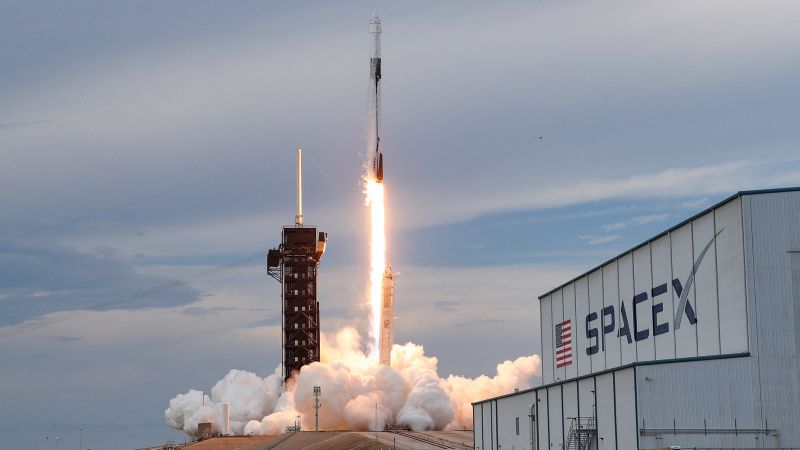Amazon just inked a deal with chief competitor and Elon Musk-helmed SpaceX to launch internet-beaming satellites — a move that comes even as Amazon founder Jeff Bezos pursues his own space dreams with his own rocket company, Blue Origin, and as SpaceX builds its own internet constellation.
While Musk and Bezos have notoriously been publicly competitive and have a history of openly sparring on social media, with Musk regularly making crude jokes about Bezos and Blue Origin, it is not uncommon for business rivals to team up in the world of rocket launches. Some Amazon satellites will still ride on a large rocket made by Blue Origin, dubbed the New Glenn. But it’s been delayed for years and will make its launch debut next year at the earliest.
Amazon announced the deal in a news release Friday, saying the company has signed an agreement to launch its satellites on three SpaceX Falcon 9 launches, which are expected to begin as soon as mid-2025.
Amazon is working to build a constellation of thousands of internet satellites, called Project Kuiper, that is planned to beam connectivity across the planet. It will compete directly with SpaceX’s Starlink service, which already has more than 5,000 satellites in orbit.



Blue Origin has been around longer than SpaceX and still has yet to get anything to orbit, while smaller companies than either have popped up and managed to in the meantime. I don’t think I’d try to contract them for launching a satellite either if I had one, one would be stuck waiting for development on an unproven launcher when ones with a reliable track record are already available.
You hear this a lot and it’s pretty misleading. Blue didn’t begin working on an orbital rocket in earnest until ~2019 and in the 2015-2020 era the headcount was on the order of hundreds instead of thousands. That headcount was spread across multiple big ticket space infrastructure projects.
In addition, New Glenn has been held back by the unexpectedly difficult qualification process to deliver engines to ULA, who is contractually entitled to the first flight articles. I’m of the opinion that bidding to be the Vulcan engine provider was a mistake, but the point remains that it’s not at all a fair comparison between SpaceX, the various smallsat launch companies, and Blue. The landscape is very different.
To be clear, something like half of the planned Kuiper launches are already contracted to go on New Glenn. The only real competitor on price/kg and turnaround time is SpaceX, whose products are a direct competitor to Kuiper. It’s not a mystery as to why they’d prefer alternate launch providers in that context.